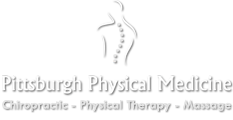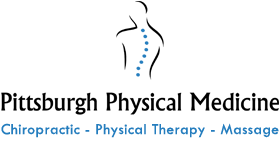Understanding Upper Crossed Syndrome In Pittsburgh PA: Causes, Exercises, and Pittsburgh Physical Medicine

UCS is a condition that affects the posture and musculature of the upper body, causing discomfort and pain. In this blog post, we will delve into what UCS is, how sitting can cause it, and explore three exercises to help correct it. We'll also discuss the treatments offered at Pittsburgh Physical Medicine, including chiropractic and physical therapy, to help you find relief from Upper Crossed Syndrome in Pittsburgh PA and regain your posture and comfort.
Understanding Upper Crossed Syndrome (UCS)
Upper Crossed Syndrome is a postural condition characterized by the imbalance of muscles in the neck, shoulders, and upper back. This imbalance creates a cross-shaped pattern of overactive and underactive muscles, leading to poor posture and various discomforts. The primary muscles affected in UCS are the upper trapezius, levator scapulae, and pectoralis major (overactive), as well as the deep cervical flexors and lower trapezius (underactive).
Causes of UCS, Especially Related to Sitting
Sitting for extended periods is a significant contributor to the development of Upper Crossed Syndrome. Here's how:
- Forward Head Posture: When we sit for extended periods, especially in front of screens, we tend to jut our heads forward. This places extra stress on the neck and upper back muscles, leading to overuse and tension in the upper trapezius and levator scapulae.
- Rounded Shoulders: Sitting at a desk often involves hunching over a keyboard or leaning forward to read a screen. This encourages the development of rounded shoulders, causing the pectoralis major to become overactive and tight.
- Weak Posterior Muscles: Sitting weakens the lower trapezius and deep cervical flexors because these muscles are not engaged when we're in a seated position, further exacerbating the muscle imbalance.
Three Exercises to Correct Upper Crossed Syndrome in Pittsburgh PA
- Chin Tucks:
- Sit or stand with your back straight.
- Gently tuck your chin towards your chest, as if making a double chin.
- Hold for 5-10 seconds and repeat 10-15 times.
- This exercise helps strengthen the deep cervical flexors, improving neck posture.
- Wall Angels:
- Stand with your back against a wall, feet shoulder-width apart.
- Keep your head, upper back, and buttocks touching the wall.
- Raise your arms to shoulder height, bend your elbows at a 90-degree angle.
- Slowly slide your arms up and down the wall while keeping your elbows, wrists, and knuckles in contact with the wall.
- Repeat for 2 sets of 10-12 reps.
- Wall Angels strengthen the lower trapezius and promote proper shoulder positioning.
- Chest Opener Stretch:
- Stand tall or sit up straight.
- Clasp your hands behind your back and straighten your arms.
- Lift your arms slightly, stretching your chest and shoulders.
- Hold for 15-30 seconds and repeat 2-3 times.
- This stretch helps alleviate tightness in the pectoralis major.
Incorporating Chiropractic and Physical Therapy at Pittsburgh Physical Medicine
Pittsburgh Physical Medicine offers comprehensive treatments for Upper Crossed Syndrome, including chiropractic care and physical therapy. Chiropractic adjustments can help realign the spine, reduce muscle tension, and improve overall posture. Physical therapy programs are tailored to each individual, focusing on strengthening underactive muscles, increasing flexibility, and correcting posture.
Conclusion
Upper Crossed Syndrome is a common condition exacerbated by our modern, sedentary lifestyles. However, with awareness, proper exercises, and professional treatments such as chiropractic care and physical therapy offered at Pittsburgh Physical Medicine, you can take steps to correct UCS, alleviate pain, and improve your posture. Don't let Upper Crossed Syndrome hold you back from enjoying a pain-free, active life.
Request An Appointment Today!
OFFICE HOURS
Monday
8:00am - 6:00pm
Tuesday
2:00pm - 6:00pm
Wednesday
8:00am - 6:00pm
Thursday
8:00am - 6:00pm
Friday
8:00am - 12:00pm
Saturday & Sunday
Closed
Pittsburgh Physical Medicine
5916 Penn Ave
Pittsburgh, PA 15206


